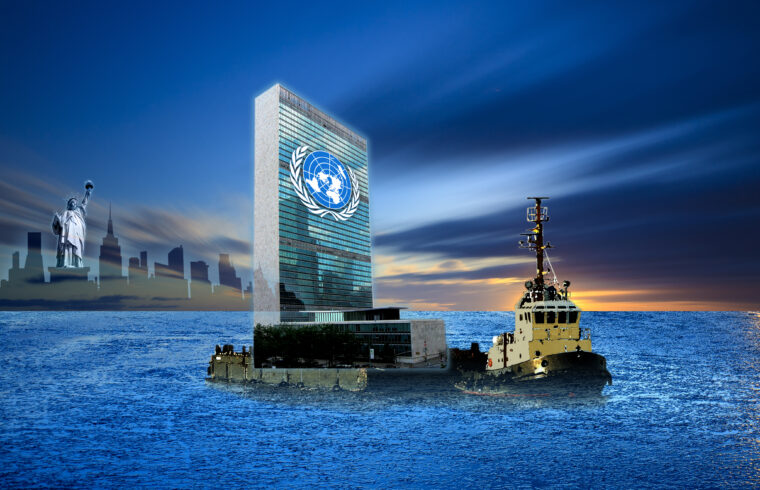Khutso Ntseki – SOUTH AFRICA
Ladies and gentlemen, esteemed delegates, and honored guests,
My Name is Khutso Ntseki, a South African, a global citizen.
Today, I stand before you with a proposition that carries the weight of history, the promise of progress, and the imperative of justice. It is a proposition that calls upon us to recognize the pivotal role Africa plays in shaping the future of our world, and it is a call to action to relocate the headquarters of the United Nations and its organs to the African continent.
For decades, Africa has been more than a mere geographical entity; it has been a crucible of resilience, a testament to the human spirit’s capacity to overcome adversity, and a beacon of hope in a world often beset by conflict and discord. From the struggles against colonialism to the fight against apartheid, Africa has been at the forefront of the quest for freedom, equality, and justice.
Yet, despite its undeniable significance, Africa and the global South remains under represented and marginalized in the global arena. It is time for us to rectify this historical injustice and to acknowledge the global south rightful place as a strategic player in international relations. Relocating the United Nations headquarters to the global south would be a powerful symbol of this recognition and a tangible step towards rebalancing the scales of global governance.
But symbolism alone is not enough. Africa’s importance in international affairs goes beyond mere symbolism; it is rooted in its rich diversity, its burgeoning economies, and its vast potential for growth and development. With a population exceeding 1.3 billion people, Africa represents a significant portion of humanity, and its voice deserves to be heard loud and clear on the world stage.
Moreover, Africa’s strategic location at the crossroads of three continents – Africa, Europe, and Asia – gives it unparalleled geopolitical significance. It is a bridge between different cultures, civilizations, and economies, and it has the potential to serve as a catalyst for peace, stability, and prosperity across the globe.
Throughout its history, Africa has played a crucial role in the United Nations, contributing troops to peacekeeping missions, championing human rights, and advocating for the interests of developing nations. From the pioneering efforts of Ghana’s Kwame Nkrumah to the visionary leadership of South Africa’s Nelson Mandela, African statesmen and women have left an indelible mark on the United Nations and have helped shape its agenda for the better.
By relocating the United Nations headquarters to Africa and or the global south, we would not only pay tribute to this legacy but also harness the global souths energy, creativity, and dynamism to tackle the pressing challenges of our time. Whether it is climate change, poverty alleviation, or conflict resolution, the global south has a wealth of knowledge and experience to offer, and it is high time we tapped into this invaluable resource.
But perhaps most importantly, relocating the United Nations to the global south would send a powerful message of solidarity and partnership to the people of the global south. It would demonstrate our commitment to working hand in hand with them to build a more just, equitable, and sustainable world for future generations.
Of course, I am not naïve enough to suggest that relocating the United Nations to Africa would be without its challenges. There are logistical, financial, and political considerations that must be taken into account, and there will undoubtedly be resistance from those who cling to the status quo.
However, the obstacles we face are not insurmountable, and the benefits of such a move far outweigh the costs. By seizing this historic opportunity, we can reaffirm our commitment to the principles of equality, solidarity, and mutual respect that lie at the heart of the United Nations.
I urge you to join me in embracing this bold vision for the future of our world. Let us stand on the right side of history and work together to make Africa the new home of the United Nations. Together, we can build a brighter, more inclusive future for all.
As we embark on this journey towards a more equitable and representative global order, let us remember the words of Nelson Mandela, who once said, „It always seems impossible until it’s done.“ The relocation of the United Nations to the global south may seem like a daunting task, but with determination, courage, and solidarity, we can turn this dream into a reality.
Let us not be bound by the limitations of the past but instead be inspired by the limitless potential of the future. The global south is ready to take its rightful place on the world stage, and the United Nations must lead the way in facilitating this transition. Together, let us write a new chapter in the history of humanity— one of unity, cooperation, and shared prosperity.
Thank you once again for your attention and your commitment to building a better world for all. Indeed, the story of South Africa’s role in advocating for justice on the international stage is one that deserves special recognition. Despite not having the veto powers wielded by some of the world’s most influential nations, South Africa has demonstrated remarkable leadership and courage in pursuing the cause of justice and human rights.
One notable example of South Africa’s commitment to international law and accountability is its role in bringing Israel before the International Court of Justice (ICJ) over the construction of the separation barrier in the occupied Palestinian territories. In 2004, South Africa, along with other concerned nations, supported a United Nations General Assembly resolution requesting an advisory opinion from the ICJ on the legal consequences of the barrier’s construction.
Despite facing diplomatic pressure and opposition from powerful actors, South Africa stood firm in its conviction that justice must prevail. Through its principled stance and tireless advocacy, South Africa helped shine a spotlight on the plight of the Palestinian people and the need for a peaceful resolution to the conflict based on international law and respect for human rights.
This example serves as a testament to the power of perseverance, moral integrity, and solidarity in the face of adversity. It demonstrates that even nations without the same level of political influence can make a meaningful difference on the world stage by standing up for what is right and just.
South Africa’s actions remind us that the pursuit of justice is not the exclusive domain of a select few but rather a collective responsibility that requires the participation and support of all nations. By standing together in solidarity with the oppressed and marginalized, we can create a world where justice, equality, and human dignity prevail.
As we contemplate the relocation of the United Nations to Africa or and the global south, let us draw inspiration from South Africa’s example and reaffirm our commitment to upholding the principles of justice, equality, and human rights for all. Together, we can build a world where every nation, regardless of its size or power, has a voice and a seat at the table of global governance.











